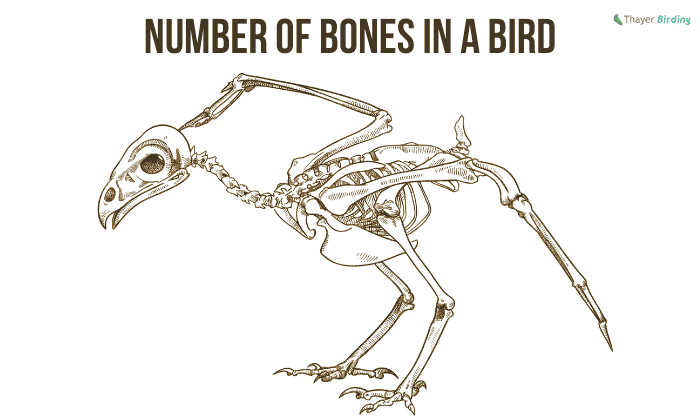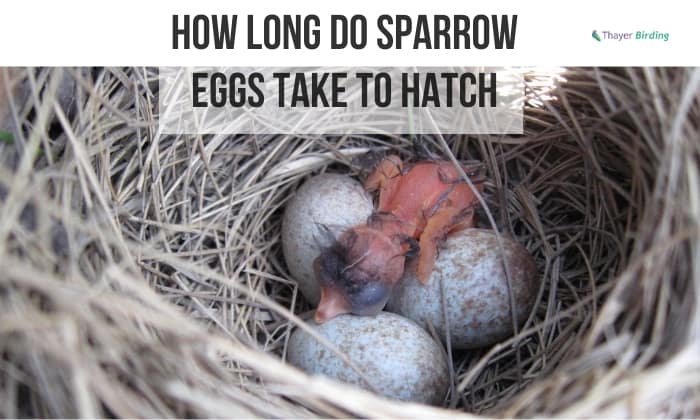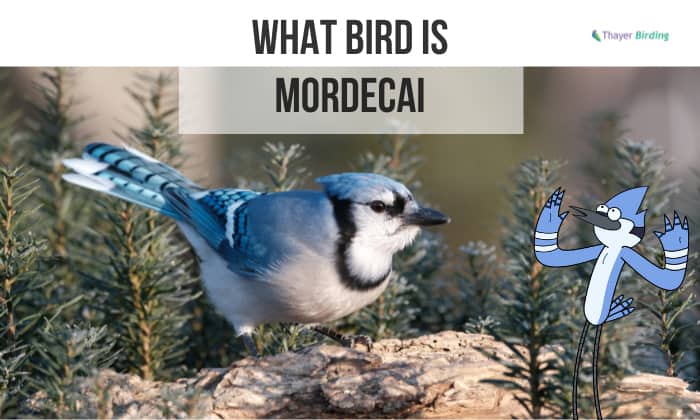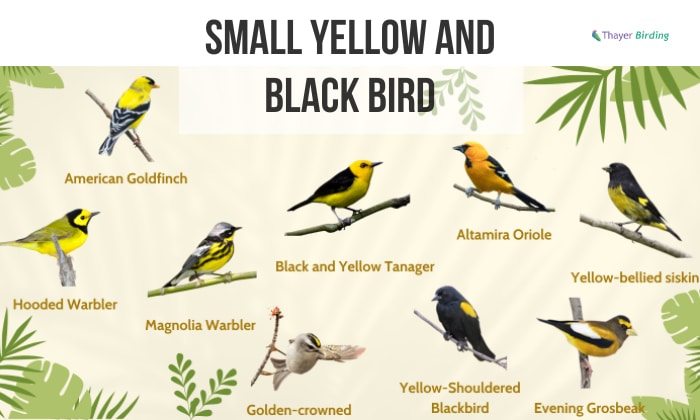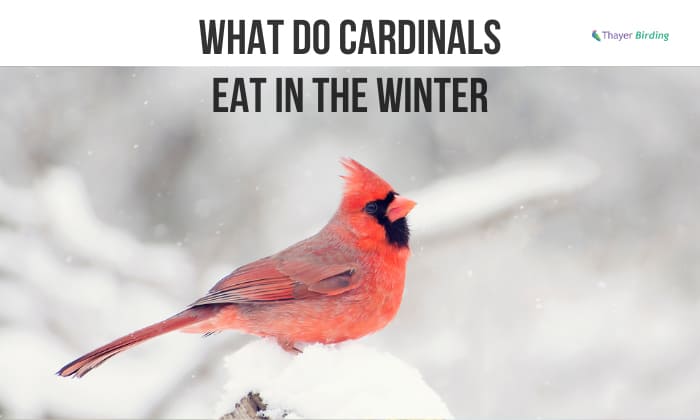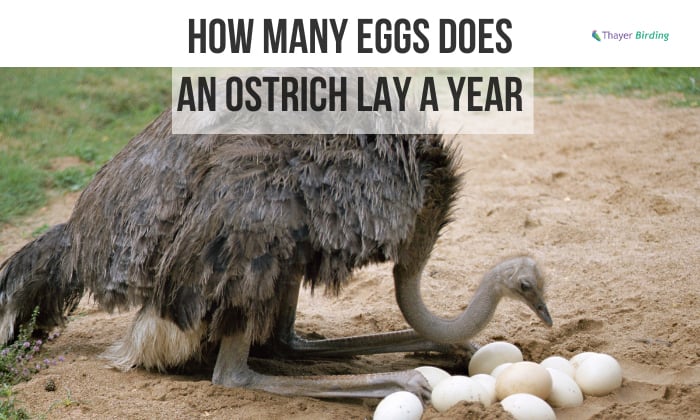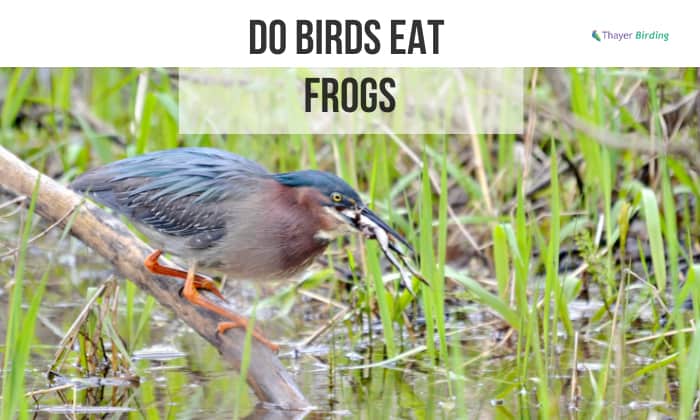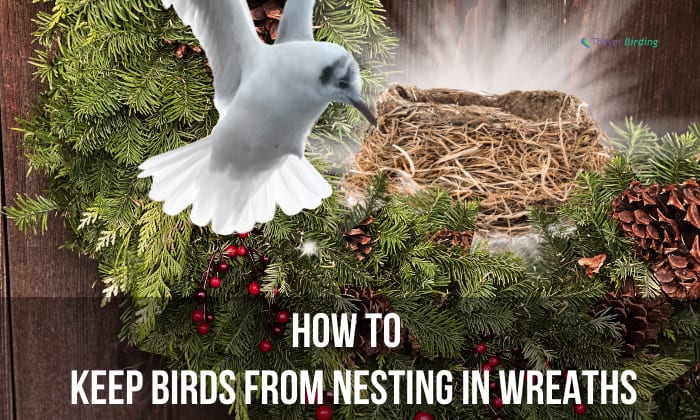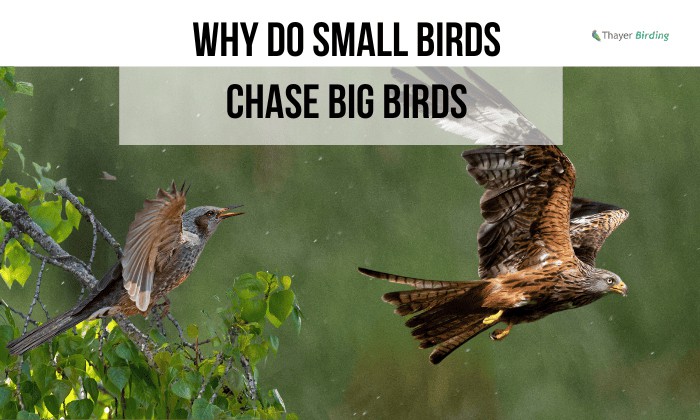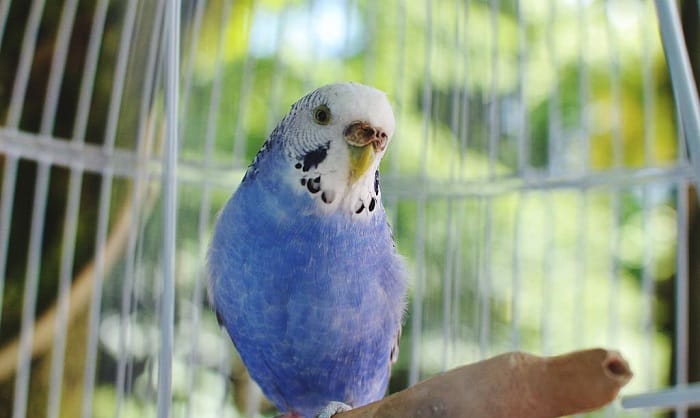
Parakeets are also known as budgerigars or “budgies” for short. They are lively, colorful birds that bring joy to every owner’s home. However, their natural chirpiness makes their moments of discomfort much more noticeable.
Why is my parakeet shaking? It could be because your parakeet is cold, hot, sick, anxious, or communicating with you.
Let’s look at ways to identify why a parakeet is shaking, when to be worried, and what to do in each situation.
Table of Contents
Why Is My Budgie Shaking?
It can be a little worrisome to see your parakeet shivering, but you don’t have to call the vet every time — sometimes, it’s just normal behavior. Here are a few of the most common reasons you might see your budgie shaking.
Take note that many of them (such as anxiety and illness) generally apply to all birds and can also help you answer why you see a parrot shaking or a cockatiel shaking.
1. Your Parakeet Is Cold
Parakeets like it best when your home is between 75 to 80 degrees Fahrenheit or about 23 to 27 degrees Celsius. However, they can tolerate temperatures a little higher or lower than this range.
How to know if your parakeet is cold? When you see your budgie fluff up and shake.
Parakeets have thick feathers that they can fluff up to get warm – like a natural blanket – and shivering helps generate heat. You may even notice your cold budgie shaking while sleeping when temperatures drop at night.
However, even though they can deal with the cold, prolonged exposure can harm your bird.
See if your pet’s cage is too close to an open window or in the way of a cold draft from air conditioning.
2. Your Parakeet Is Hot
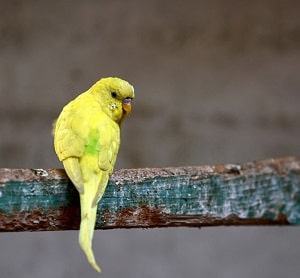
On the flip side, how do you know if the parakeet is too hot?
When your parakeet has its budgie wings slightly open and shaking, it’s trying to cool down. Sometimes, it will even flap a bit to try to create some air.
3. Your Parakeet Is Anxious
We all shake a little bit when nervous – you, me, and our pet parakeets.
It’s possible your parakeet was just momentarily jolted by a sudden loud noise and is still trying to calm down and reassure itself all is well.
A parakeet may also sense a direct threat nearby, such as seeing a neighbor’s cat through the window. This causes it to tremble in fear and worry that it might be attacked.
4. Your Parakeet Is Sick
We all want our budgies to be healthy, but getting sick is part of life.
Shaking is one of the sick budgie symptoms, usually accompanied by other signs such as panting, lethargy, weakness, lack of appetite, losing feathers excessively, and swollen eyes.
Note that birds have evolved to hide their illness, especially in the wild, since sick-looking birds make for easy targets! Therefore, you need to pay extra attention to notice signs of a sick budgie.
5. Your Parakeet Is Preening
Birds love to groom themselves, a practice known as “preening.”
When birds preen, they sometimes shake their whole body to fluff up their feathers, smooth them down, and rearrange them again.
6. Your Parakeet Is Getting Ready To Fly
Flying is exciting – and also requires some momentum for takeoff.
Some parakeet owners have noticed their pets’ pre-flight routine, which may include trembling and shaking it’s wings. Note that budgies may also shake their wings as a form of exercise, usually when they’ve just woken up.
7. Your Parakeet Is Communicating
Birds rely on their body language to talk to their owners and each other. Here are some ways they do so:
- A budgie shaking tail
If your budgie shakes its tail side to side, it is probably doing a little happy dance! It’s likely thrilled to see you and can’t control its budgie tail shivering.
However, your budgie may also shake its tail to dry itself and dislodge debris, mainly if it is outside, was just in the rain, or in a bath.
It’s also possible that your parakeet is sick, especially if the tail moving is accompanied by loud breathing.
- A budgie shaking his head
Head shaking may be a sign your parakeet is in love. The movement is part of the parakeet mating ritual – your bird may be trying to impress someone!
Aside from romance, young parakeets may also move their heads when they’re hungry. This is a sign you should feed them.
It’s also likely that your pet birds haven’t acquired full control of their muscles yet, which led to the shaking.
- A budgie shaking its wings
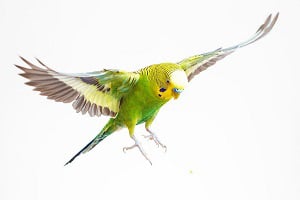
A parakeet shaking its wings can mean anything from preening to a bird too hot for comfort.
However, if you see your budgie flap their wings really fast, they may be in distress and feeling aggressive. This is a tricky situation – I can try to calm my budgie, but holding them at this time will result in him biting me!
In this case, it’s best to soothe your bird from a distance.
Frequently Asked Questions
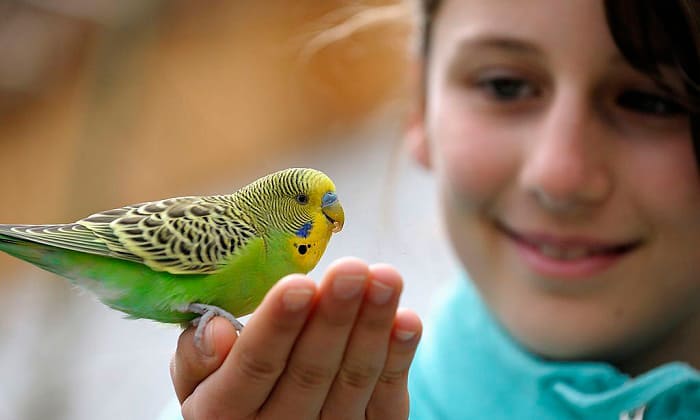
Is it normal for my parakeet to shake?
Generally speaking, it’s normal for your parakeet to shake for various reasons. If your pet bird is new to your home, it may need a few days to adjust before it stops nervously trembling.
You should only become concerned and call your vet for an appointment if the shaking seems excessive or doesn’t stop for extended periods.
How to cure a shaking parakeet?
Curing your shaking parakeet begins with identifying the cause of its trembling. If it’s related to the environment (temperature, something stressful in its range of vision, etc.), address the trigger, and your parakeet’s trembling should stop.
If your budgie’s shaking does not stop even after you have tweaked its habitat or is accompanied by other symptoms, it’s best to seek medical advice as soon as possible.
How to keep your parakeet healthy?
Parakeets are often recommended for beginner bird pet owners because they are extremely simple to take care of.
They need a cage with enough space to move around comfortably, good food (bird seeds and pellets), fresh, clean water, and a little daily company and stimulation.
Of course, the way to keep any pet healthy is by constant observation. Take note of any changes in appearance or behavior, and call the vet if your pet doesn’t revert to normal within a week or so.
Conclusion
When I start worrying about my parakeet shaking, I take a deep breath and remind myself that it’s a good thing.
Why is my parakeet shaking? Because it’s probably trying to tell me something.
Budgies are small but extremely tough and intelligent. They are more than capable of taking care of themselves – all I need to do is listen carefully and give the bird help when it asks.

George and I became friends after a birdwatching trip with our new group. And we have been enjoying every adventure together. When he told me the idea of establishing a site that shares our experiences and fun, I immediately agreed. After trials and errors, here we have Thayerbirding.



